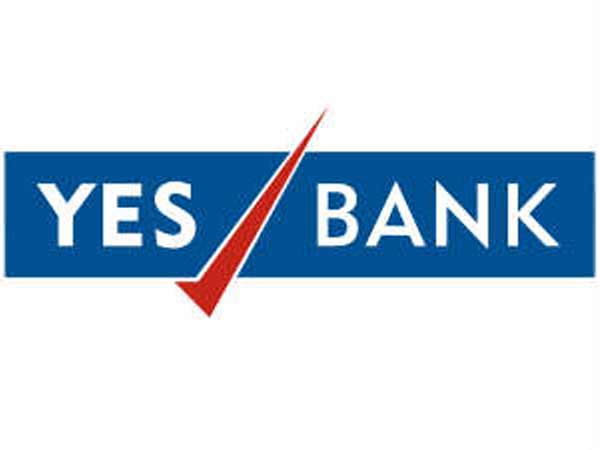TCS:
Tata Consultancy Services from the house of Tata group is the top Information Technology company in India by revenue. The company’s history dates back to the year 1968 when it was started as a division of Tata Sons as a management and technology consultancy firm. As of now, the company’s services range from cloud, consulting, TCS interactive, Analytics and Insights, IoT, Blockchain, Enterprise Applications, Cognitive Business Operations, Conversational Experiences, Automation & AI, Engineering and Industrial Services and Cyber security among others.
For the Q4Fy21 quarter, the company recorded a 14.9% increase in consolidated net profit to Rs. 9247 crore versus Rs. 8049 crore in the same quarter during a year-ago period. Revenue at the IT major also came in higher at Rs. 43,705 crore in comparison to Rs. 39,946 crore in the year ago period, a 9.4% y-o-y increase.
TCS made its stock market debut in August 2004 at a price of Rs. 1076 and just 3-months ago on April 9 hit its 52-week high price of Rs. 3358.80 on the BSE.
– Market cap- Rs. 11.8 lakh crore
– LTP- Rs. 3200.25
– EPS- 87.67
– P/E- 36.5
– The company in the last 4 years has announced 3 buybacks of around USD6-7 billion which provides a support to its price and that has also helped in maintaining retail investors’ interest in the scrip.
– Stock Analysis: YoY returns-On a year on year basis, the stock of TCS given the closing price of Rs. 2072 on June 9, 2020 and LTP of Rs. 3200 today has provided a phenomenal return of 54%
Strong long term fundamental strength with an average Return on Equity (ROE) of 34.90%
Net Sales at the company has grown by an annual rate of 8.61%. TCS has a low Debt to Equity ratio (avg) at -0.36 times. The company’s annual sales of
High institutional holding at 23.51%.
Stock is in a mildly bullish territory.
Brokerage Recos
| Brokerage |
Recommendation |
TP |
| Narnolia Financial Advisors |
Buy |
Rs. 4150 |
| SMC Global |
Buy |
Rs. 3462 |
2. Infosys:
The Bengaluru based IT major was set up in the year 1981 and is currently the second leading IT firm after TCS in revenue. The company’s products and services include NIA – Next Generation Integrated AI Platform, consulting, Information platform, Finacle- i.e. part of EdgeVerve Systems, Panaya Cloud Suite and Skava among others.
Large deal wins: For the Q3 period of FY21, Infosys announced that the TCV of large deals stood at $7.1 billion, this was higher in comparison to all the deals won by TCS whose TCV came in at $6.8 billion. In the Q4 period of FY21 also, the company’s net profit surged 17.5% y-o-y to Rs. 5076 crore owing to large deal wins and increased digital adoption amid the pandemic.
Guidance: Infosys guided for double digit revenue growth of 12-14% in FY22 on the back of major deal wins from Google and Daimler AG. In FY21, it logged growth of 6.1 percent.
The company’s debt free balance sheet together with its potential to reap healthy cash flow is also in its favour. Experts see the stock of Infosys to provide multi-bagger returns over a period of time.
-M-cap- Rs. 6.03 lakh crore
-LTP- Rs. 1415.3
– EPS-45.41
-P/E- 31.17
– Stock Analysis: 1 year performance comparison- On June 9, 2020, the stock of Infosys closed at a price of Rs. 717 and considering today’s price of Rs. 1415, the 1-year return from the scrip has been 97%.
Strong long term fundamental strength with an average RoE of 23.9%
The stock has outperformed BSE 500 in the last 3 years.
Recos:
| Brokerage |
Recommendation |
TP |
| Geojit BNP Paribas |
Buy |
Rs. 1614 |
| SMC Global |
Buy |
Rs. 1500 |
3. Tech Mahindra:
Pune-headquarterd Tech Mahindra is a subsidiary of the Mahindra Group and offers BPO and Information Technology Services. The company also caters to the telecommunication sector by providing IT enabled solutions.
For the quarter ended March of FY21, Tech Mahindra posted 35% year on year jump in net profit at Rs. 1081 crore. This was sequentially lower by 17% in comparison to Rs. 1309 crore in the December ended quarter.
The share price of Tech Mahindra may rise with the commercial launch of 5G services in India.
-M-cap: Rs. 1.01 lakh crore
-EPS- 45.71
-P/E- 23.02
– Stock’s performance year-on-year- On June 9, 2020, the scrip of Tech Mahindra closed at a price of Rs. 586 and hence considering today’s CP of Rs. 1052, the stock has yielded a return of 80%.
Conclusion:
Now as the blue-chip IT stocks are available at a cheaper valuation in comparison to their mid-cap peers, one can bet on them for both short term as well as long term investment to gain handsomely. Nifty IT index is currently trading above its 20-, 50- and 100-day moving average which is indicative of bullish sentiments going forward. In the near term, there is seen an upside of 3.5% in the index to 28,600. Furthermore, if held for long term, these IT stocks have the potential to generate multibagger returns.
 Multibagger stock ideas to buy in India 2021
Multibagger stock ideas to buy in India 2021
Disclaimer: The views and investment tips expressed by authors or employees of Greynium Information Technologies, should not be construed as investment advise to buy or sell stocks, gold, currency or other commodities. Investors should certainly not take any trading and investment decision based only on information discussed on GoodReturns.in We are not a qualified financial advisor and any information herein is not investment advice. It is informational in nature. All readers and investors should note that neither Greynium nor the author of the articles, would be responsible for any decision taken based on these articles.
GoodReturns.in

















 Multibagger stock ideas to buy in India 2021
Multibagger stock ideas to buy in India 2021










